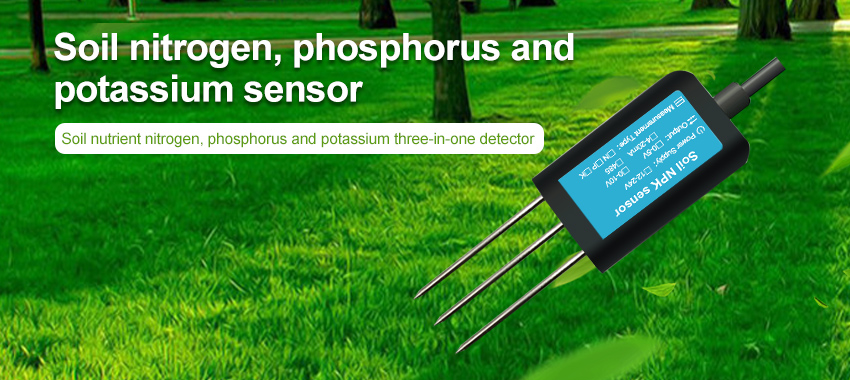Soil nutrient sensor are essential tools in modern agriculture that enable farmers to accurately assess the nutrient levels in soil. By providing real-time data on essential nutrients, these sensors facilitate precision farming practices, leading to improved crop yield, reduced resource wastage, and sustainable agricultural practices. This article explores the significance of soil nutrient sensors, their working principles, and the benefits they offer in optimizing nutrient management.
Understanding Soil Nutrient Sensor

Soil nutrient sensors are electronic devices designed to measure the nutrient content in soil. They help farmers make informed decisions regarding fertilizer application, ensuring optimal nutrient availability for plant growth. Monitoring soil nutrient levels is crucial as nutrients play a vital role in plant development, influencing plant health, yield potential, and overall crop performance.
Working Principles of Soil Nutrient Sensor
Soil nutrient sensors utilize different techniques to measure nutrient concentrations in soil. One common approach is the use of ion-selective electrodes, which selectively respond to specific ions present in the soil solution. These electrodes generate electrical signals proportional to the nutrient concentrations, allowing for precise measurement. Another method involves the use of optical sensors that employ light absorption or reflectance to assess nutrient levels based on changes in the optical properties of the soil sample.

Soil nutrient sensors offer several advantages, revolutionizing nutrient management in agriculture:
Accurate Nutrient Assessment:
These sensors provide real-time, on-site measurements of nutrient levels, eliminating the need for laboratory testing. This enables farmers to make immediate decisions about nutrient application and adjustments, ensuring plants receive the optimal nutrient balance for growth.
Precise Fertilizer Application:
By providing accurate information about nutrient content in the soil, these sensors enable farmers to apply fertilizers precisely, avoiding over- or under-application. This helps optimize nutrient utilization, reduces waste, and minimizes environmental impact.
Yield Optimization:
Soil nutrient sensors contribute to maximizing crop yield by ensuring plants have access to the right nutrients at the right time. By monitoring nutrient levels throughout the growing season, farmers can adjust fertilizer applications, preventing nutrient deficiencies or toxicities that can hinder plant growth and yield potential.
Environmental Sustainability:
Precision nutrient management facilitated by soil nutrient sensors reduces the risk of nutrient runoff into water bodies. By applying the correct amount of fertilizer, farmers can minimize the environmental impact while maintaining soil fertility, promoting sustainable agricultural practices.
Applications of Soil Nutrient Sensor
Soil nutrient sensors find widespread applications in various agricultural practices, including:
Crop Production:
Soil nutrient sensors assist in optimizing nutrient management in row crops, orchards, and vineyards. By evaluating soil nutrient levels, farmers can tailor fertilization strategies to meet specific crop requirements, leading to improved yield and quality.
Precision Irrigation:
These sensors also aid in determining the timing and amount of irrigation required based on the nutrient levels in the soil. By optimizing irrigation practices, farmers can prevent water wastage and minimize nutrient leaching.
Soil Health Monitoring:
Soil nutrient sensors play a vital role in assessing overall soil health by measuring macro and micronutrient levels. This information aids in identifying soil deficiencies, imbalances, or nutrient lock-ups, allowing for targeted amendments to enhance soil fertility and productivity.
Conclusion:
Soil nutrient sensors have revolutionized the way farmers manage nutrient application in agriculture. By providing real-time data and enabling precise nutrient management, these sensors empower farmers to optimize crop production, reduce environmental impact, and adopt sustainable practices. The incorporation of soil nutrient sensors in precision agriculture enhances agricultural productivity while preserving soil health, ensuring a more sustainable and efficient farming future.
